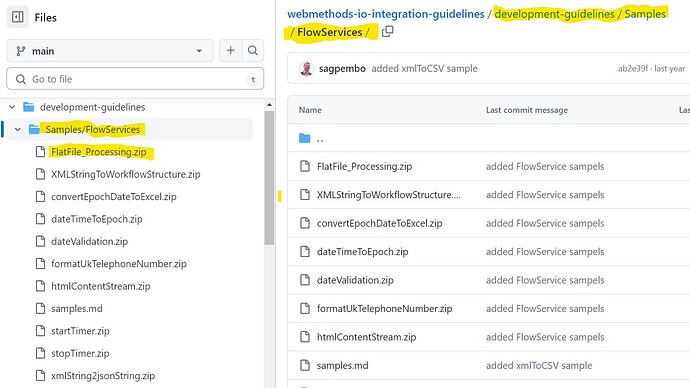How to read local file in webMethods.io workflow
What do you mean in this context with “local file”? Maybe you assume workflow runs on a system like “ONPREM Integration Server”?
The right methods to deal with file based content depend on where it is located. e.g. OneDrive, SharePoint, S3 or sFTP storage.
There are connectors available to address each of those use cases and many more. (As reference: https://docs.webmethods.io/integration/connectors/connector-bundle/storage-c/#gsc.tab=0)
“local files” in the sense of the WORKFLOW RUNTIME do not exist; especially not across multiple runtimes of an “WorkFlow”.
However you have various storage options available to store and also share your data if needed.
Those are called " Account Store, Flow Store, and Memory Store" - for details see: https://docs.webmethods.io/integration/tutorials/moretutorials/#co-account-store-memory-store-flow-store
There is no such a “local C: Drive” in cloud world. ![]()
Why would you need any?
Hi @vaibhavi_ghumare
First thing: make sure you review the wM.io Integration Development guidelines available in GitHub GitHub - SoftwareAG/webmethods-io-integration-guidelines: This repository contains various guidelines for webMethods.io Integration.
This provides valuable information and guidelines that will save you headaches later.
The Implementation Patterns section has info on File Handling.
FlowServices (not Workflows) should be used if dealing with files.
webMethods.io Integration has a connector that is only available to the FlowService engine called FlatFile. This connector allows you to define a structure of a file, either separated, or fixed length, and then you can use this created connector to parse a data file.
In addition, there are some sample FlowServices you can download and import into your wM.io Integration environment.
—Wayne
I believe you have a requirement and you have a solution in your mind according to your previous experiences and you assume you would implement it right away if you knew how to read local files. Instead of asking a solution to your attempt, you should explain your requirement and what you tried to solve it. This is called xy problem and it usually wastes everyone’s time.
This topic was automatically closed 180 days after the last reply. New replies are no longer allowed.
